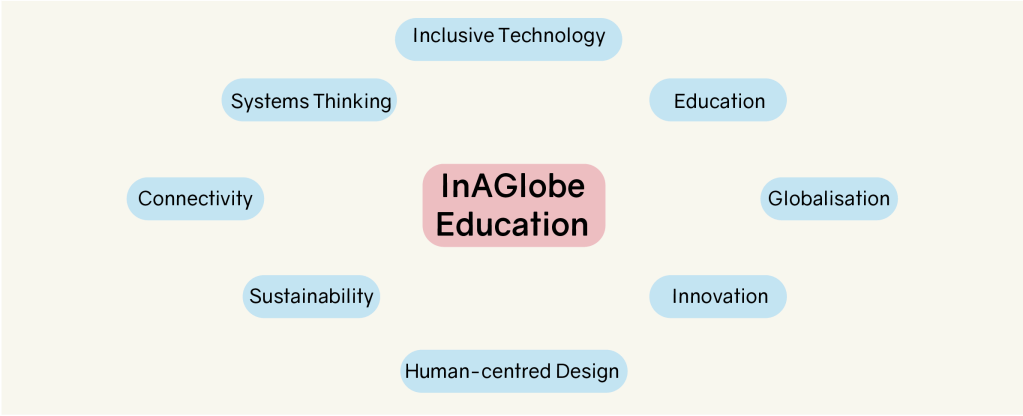Introduction to InAGlobe’s Backbone Themes Essay Series
More than ever, in a world of increasing complexity, we need to become aware of the countless challenges that the forthcoming generations will need to tackle, we need to be aware of what is happening. This sounds journalistic, but the difference is that a lot of information is already there, we just need to interpret it, we need to understand it. At InAGlobe we see our mission as far more than simply building partnerships towards humanitarian innovation. We believe that we have a responsibility in bringing understanding and exposure to the topics that we engage with day-in and day-out, those that feed ambitions that have an element of fantasy. By equipping individuals with the tools to understand and tackle complex problems we will be propagating a narrative that requires as many people as we can possibly involve. Second of all these are topics we love thinking and talking about, so ever more the joy!
Over the next few months, we will re-purpose the blog that was losing traction, in favour of furthering operations. Do more, talk less. But now, by talking more we involve more, we engage more, we educate more. This seems a lot more like InAGlobe. I am pleased to announce a series of short essays written by the team at InAGlobe surrounding the topics of relevance to our vision, mission and operations. In the essays we will cover topics ranging from the most basic elements that guide us, such as sustainability, education and innovation, and tools that we use everyday such systems thinking and human-centred design. We will also explore topics related to the projects currently and prospectively running within Imperial College London. These include topics such as assistive technologies, infectious diseases, inclusive technology as well as sanitation and climate change. We have followed a structure which contextualises these in terms of tackling the UN 2030 Sustainable Development Goals (SDGs), as these are the defined standards which humanity should be seeking to reach upon the end of the next decade. There are 17 SDGs, and we don’t claim to tackle all of them, but they are often problems that are interconnected in between them, and so it is important to consider the impact of each solution to a problem far past the individual SDG that you are measuring. Although not immediately obvious, a good example is those living in poverty that are seeing the biggest negative impact due to climate change, such as farmers or herders living in the Sahel impacted by desertification. Climate change is most taxing on those that have fewest alternatives.
By publishing these essays we seek to be more explicit about the work that we do at InAGlobe and the things that we care about. We hope that this brings you closer to our cause and may engage you in some way, even externally to InAGlobe. We want to partake in a global frameshift that allows people to make educated decisions and share the responsibility in making planet Earth the best version of itself that it can be. InAGlobe seeks to contribute to a minute aspect of the challenge, and we want every single person that reads these pieces to be a flagship towards building a better and fairer world.
Written by Jaime Aguilera Garcia (11/03/2019) -CEO and Co-founder of InAGlobe Education.


